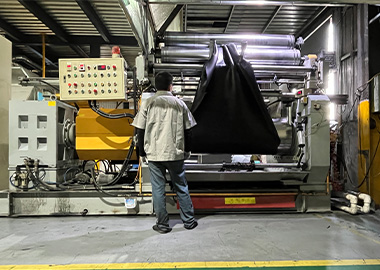engine oil cooler pipe
ኅዳር . 05, 2024 15:21 Back to list
engine oil cooler pipe
Understanding Engine Oil Cooler Pipes Function, Importance, and Maintenance
The engine oil cooler pipe plays a crucial role in a vehicle's cooling system, ensuring optimal performance and longevity of its engine. As engines operate, they generate a significant amount of heat. This heat can adversely affect engine parts, leading to decreased efficiency or even catastrophic failure if not managed properly. Engine oil cooler pipes are designed to transport oil to and from the oil cooler, effectively maintaining the engine’s temperature within safe operating limits.
Function of the Engine Oil Cooler Pipe
Engine oil serves multiple essential functions, including lubrication, cleaning, and cooling. As the oil circulates through the engine, it absorbs heat generated from various moving components. The oil then passes through the oil cooler pipe, which directs it to the oil cooler, typically located at the front of the vehicle, near the radiator. The cooler uses airflow to reduce the temperature of the oil before it reenters the engine.
The oil cooler pipe is usually a flexible or rigid conduit made from materials resistant to high temperatures and pressures, such as stainless steel or reinforced rubber. Its design is critical, as it must withstand the constant flow of oil under varying pressure and temperature conditions. Proper circulation ensures that the oil remains effective in its primary functions, preventing overheating and maintaining engine health.
Importance of Engine Oil Cooler Pipes
Maintaining a healthy engine oil cooler pipe is fundamental for several reasons
1. Preventing Engine Overheating Overheating can cause severe damage to engine components, including bearings, pistons, and even the engine block. An efficient oil cooler pipe helps regulate oil temperature, ensuring the engine operates within its optimal thermal range.
2. Extending Engine Life Consistently maintaining the proper operating temperature through effective oil management can significantly extend the life of the engine. By preventing overheating, the risk of wear and tear on engine components is reduced, leading to fewer repairs and a longer service life.
3. Enhancing Performance A cooler engine oil is more effective at lubricating the engine's moving parts. This improved lubrication leads to lower friction, better fuel efficiency, and enhanced overall performance.
engine oil cooler pipe

4. Preventing Oil Breakdown High temperatures can cause engine oil to break down more quickly, reducing its effectiveness. When oil loses its viscosity, it can no longer provide proper lubrication, leading to engine wear and potential failure.
Maintenance of Engine Oil Cooler Pipes
To ensure the reliability and longevity of the engine oil cooler pipe, regular maintenance is essential. Here are some key steps vehicle owners can take
1. Regular Inspections Periodically checking the oil cooler pipe for signs of wear, leaks, or corrosion is crucial. Look for any oil stains underneath the vehicle, as these are indicative of leaks that need immediate attention.
2. Change Engine Oil Regularly Regular oil changes are vital for maintaining engine health. Old oil can contain contaminants that may affect the functioning of the oil cooler and its associated components.
3. Replace Worn Components If any signs of damage are detected on the oil cooler pipe or its fittings, timely replacement is necessary. Neglecting worn parts can lead to significant engine problems down the line.
4. Flush the Coolant System The cooling system should be flushed and replaced as per the vehicle manufacturer's recommendations to ensure optimal performance and prevent overheating. This is particularly important in vehicles with integrated engine oil and coolant systems.
5. Professional Inspections Having a qualified mechanic perform routine inspections can help catch potential issues early. They can also assess the condition of the entire cooling system, including the oil cooler pipe, to ensure everything is functioning as it should.
Conclusion
The engine oil cooler pipe is an essential component of a vehicle's cooling system, playing a vital role in maintaining the engine's temperature and overall performance. Regular maintenance and timely replacements are crucial for ensuring this component functions effectively. By understanding the significance of the engine oil cooler pipe and taking proactive measures, vehicle owners can extend the life of their engines, improve performance, and prevent costly repairs. Investing time and resources into proper care can yield significant long-term benefits for any vehicle owner.
